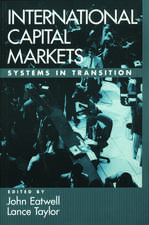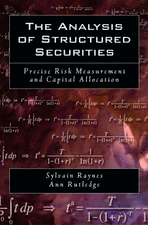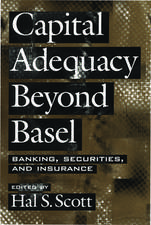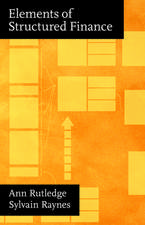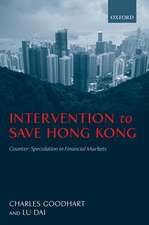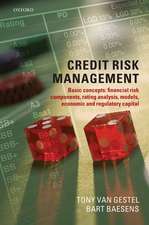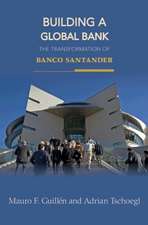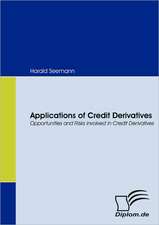The Architecture of Collapse: The Global System in the 21st Century: Clarendon Lectures in Management Studies
Autor Mauro F. Guillénen Limba Engleză Paperback – 30 oct 2018
| Toate formatele și edițiile | Preț | Express |
|---|---|---|
| Paperback (1) | 137.59 lei 31-37 zile | |
| OUP OXFORD – 30 oct 2018 | 137.59 lei 31-37 zile | |
| Hardback (1) | 305.64 lei 31-37 zile | |
| OUP OXFORD – 22 oct 2015 | 305.64 lei 31-37 zile |
Preț: 137.59 lei
Preț vechi: 164.80 lei
-17% Nou
Puncte Express: 206
Preț estimativ în valută:
26.33€ • 28.59$ • 22.12£
26.33€ • 28.59$ • 22.12£
Carte tipărită la comandă
Livrare economică 12-18 aprilie
Preluare comenzi: 021 569.72.76
Specificații
ISBN-13: 9780198804437
ISBN-10: 0198804431
Pagini: 236
Dimensiuni: 157 x 233 x 13 mm
Greutate: 0.36 kg
Editura: OUP OXFORD
Colecția OUP Oxford
Seria Clarendon Lectures in Management Studies
Locul publicării:Oxford, United Kingdom
ISBN-10: 0198804431
Pagini: 236
Dimensiuni: 157 x 233 x 13 mm
Greutate: 0.36 kg
Editura: OUP OXFORD
Colecția OUP Oxford
Seria Clarendon Lectures in Management Studies
Locul publicării:Oxford, United Kingdom
Recenzii
Few social scientists have the urbane vision and capacious intellect of Mauro Guillén. His dissection of the shock inducing and absorbing features of our interconnected world system vividly details the risks we presently face, but also paves the way for steps that could cushion the present volatility.
A brilliant critical engagement with different interpretations of what makes a system prone to failure. The author develops a multi-level and multi-nodal analysis that allows him to single out strategic sources of systemic instability and to demonstrate what can be done.
A fascinating perspective on the sources of instability in the global system. Professor Guillén brings to bear powerful concepts from the study of system complexity. A must read for anyone interested in financial markets, international migration, and the rise or fall of nations.
This book offers a sobering analysis of the risks facing the global economy, from population aging to financial inter-connections. The policy recommendations are important and timely.
A careful conceptual construction of complexity and coupling... [providing] new insights into why countries are likely to experience more frequent crises. Guillén skillfully navigates a multidisciplinary interrogation of the increasing fragility of the global economic system.
A brilliant critical engagement with different interpretations of what makes a system prone to failure. The author develops a multi-level and multi-nodal analysis that allows him to single out strategic sources of systemic instability and to demonstrate what can be done.
A fascinating perspective on the sources of instability in the global system. Professor Guillén brings to bear powerful concepts from the study of system complexity. A must read for anyone interested in financial markets, international migration, and the rise or fall of nations.
This book offers a sobering analysis of the risks facing the global economy, from population aging to financial inter-connections. The policy recommendations are important and timely.
A careful conceptual construction of complexity and coupling... [providing] new insights into why countries are likely to experience more frequent crises. Guillén skillfully navigates a multidisciplinary interrogation of the increasing fragility of the global economic system.
Notă biografică
Mauro F. Guillen is the Zandman Professor of International Management at the Wharton School, and Director of the Lauder Institute, University of Pennsylvania. His research has to do with globalization and its impact on patterns of organization and on the diffusion of innovations. He is the author of a dozen books and over 40 scholarly articles. He is an elected fellow of the Sociological Research Association, a former Guggenheim fellow, a recipient of the Aspen Institute's Faculty Pioneer Award, and a member of the Global Agenda Council on Emerging Multinationals at the World Economic Forum.














